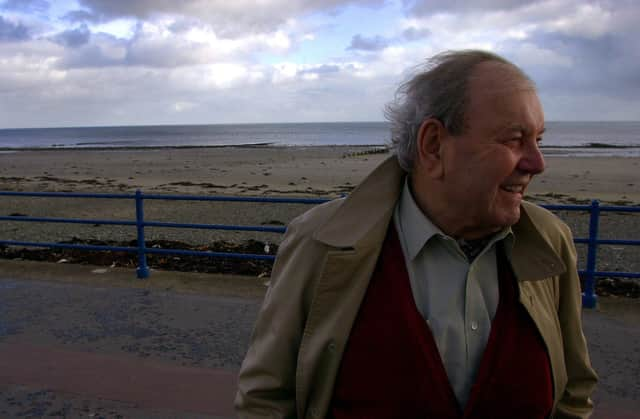George MacDonald Fraser's Flashman can teach us a lesson in morality – Alastair Stewart


As a society, we’re in danger of becoming too scared to offend. It makes satire all the more critical to how we burst the bubble of hubris, the powerful and the hypocritical.
In the Second World War, the bloodiest war in human history, the Allies refused to bomb Venice because of its cultural significance. Even then, statues were contentious. And yet how could that insane mentality be captured but for the genius of Joseph Heller’s Catch-22? What we’re forgetting is the total cultural shift about what is acceptable behaviour and language has all happened before. Our monarchs lend their names to ages, and nearly always there is an overlapping shift in moral mores, taboos and values from slavery to sex and now statues.
Advertisement
Hide AdAdvertisement
Hide AdNo one has better satirised moral double-standards than George MacDonald Fraser. The Flashman Papers are the finest historical novels ever committed to paper. They are an acerbic and pugilistic tour de force through the famous and lesser-known chapters of British and American history. Flashman is a bully, a cad, a coward and a bounder, but what he’s not is a liar, at least not to his memoirs.
When the young Queen Victoria ascended to the throne in 1837, her picture-perfect family life represented a move from Georgian vice, loose virtues and sexual libertinism. Harold Perkin writes that, by 1850, the British “ceased to be one of the most aggressive, brutal, rowdy, outspoken, riotous, cruel and bloodthirsty nations in the world and became one of the most inhibited, polite, orderly, tender-minded, prudish and hypocritical”.
Of course, as Fraser brilliantly shows through actual events and research, the former traits still existed, they never went away. It just became less acceptable to advertise indulging in them.
Cruelty to children, attitudes to the poor, the treatment of indigenous populations, systemic racism and expansionist wars – all of it was perfectly normal at the time. In the puritanical hypocrisy of Victorian and Edwardian Britain, Flashman is a hero; cowardice, lechery and unbecoming conduct are the greatest social shames in an Empire guilty of torture, murder, slavery and repression. Only humble Flashy has the gall to put it down on paper in his reminisces from the safety of old age.
Moral revolutions of the like we see now need to balance aesthetic change with an actual conversion. There is no example in history where the latter has happened with the haste we’re hoping to redress centuries of injustice over race, sex or gender. The danger is that by silencing all voices, and not just the hateful, we never deal with our societal problems. In the US, the argument that ‘the Confederacy never died; it was just assimilated’ holds disturbing weight.
It’s absolutely wrong to pretend we can snap our fingers and make issues go away. The cultural reassessment that we’re going through has happened before, but it never happens quickly. Churchill said it himself when defending the morality of aerial bombing – morality changes like women’s fashions from long to short skirts.
What we need to avoid is producing a society, like Fraser’s Victorian Britain, that’s too afraid to discuss anything of note for fear of being taboo. It puts appearances before substance. By censoring each other, we limit the truth of what might be there, anyway. ‘Kafkaesque’ and ‘Orwellian’ describe absurd abuses of power. ‘Fraserian’ should join the lexicon as an argument to see morality precisely as it is and not how we wish to view it.
Alastair Stewart is a freelance writer and public affairs consultant. He regularly writes about politics and history with a particular interest in nationalism and the life of Sir Winston Churchill. Read more from Alastair at www.agjstewart.com and follow him on Twitter @agjstewart
A message from the Editor:
Advertisement
Hide AdAdvertisement
Hide AdThank you for reading this article on our website. While I have your attention, I also have an important request to make of you.
With the coronavirus lockdown having a major impact on many of our advertisers - and consequently the revenue we receive - we are more reliant than ever on you taking out a digital subscription.
Subscribe to scotsman.com and enjoy unlimited access to Scottish news and information online and on our app. With a digital subscription, you can read more than 5 articles, see fewer ads, enjoy faster load times, and get access to exclusive newsletters and content. Visit www.scotsman.com/subscriptions now to sign up.
Our journalism costs money and we rely on advertising, print and digital revenues to help to support them. By supporting us, we are able to support you in providing trusted, fact-checked content for this website.
Joy Yates
Editorial Director
Comments
Want to join the conversation? Please or to comment on this article.